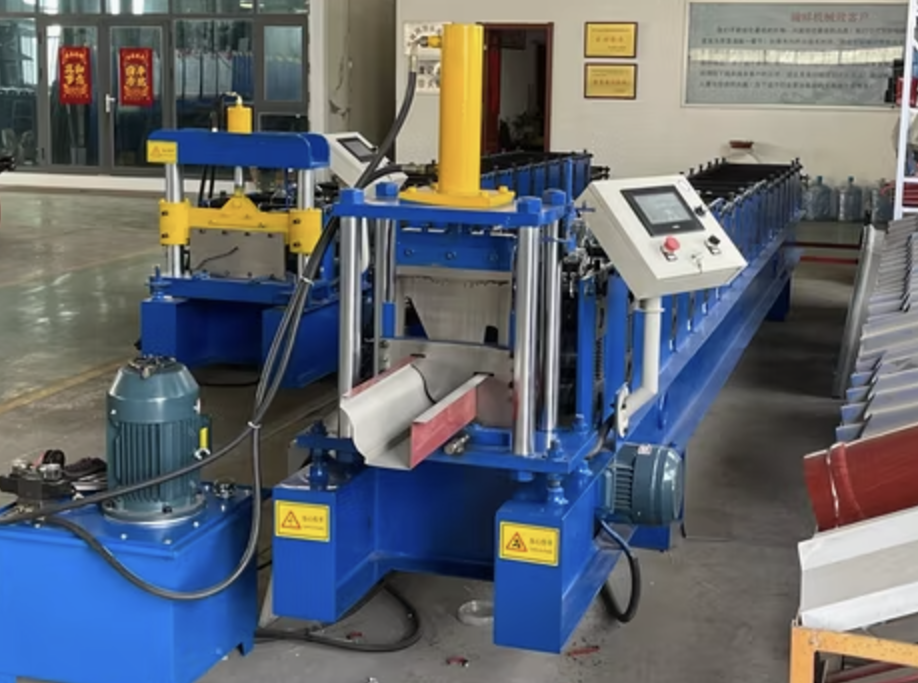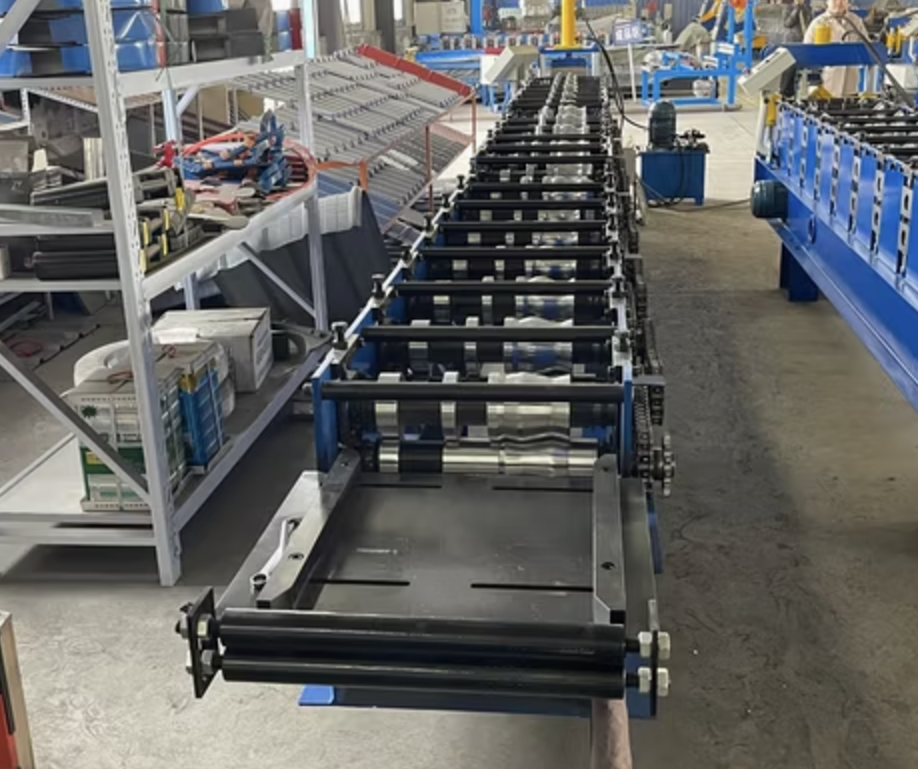To express an interest in this machine please submit the form below.

Not Sure What Machine You Need?
Select Your Profile, We'll Match It
Choose your desired profile drawing, and let Machine Matcher connect you with the best roll forming machine tailored to your needs.
Browse Profiles


Gutter roll forming machines are specialized equipment used to manufacture rain gutters efficiently and accurately. These machines are widely utilized in Brazil due to the country's varying climate conditions, which demand effective rainwater management systems for residential, commercial, and industrial buildings.
A gutter roll forming machine is designed to produce gutters in different profiles, including K-style, U-style, box gutters, and half-round gutters. It transforms metal coils into seamless gutters through a series of rollers that shape the metal into the desired profile.
In Brazil, these machines are increasingly popular among roofing contractors and manufacturers because they enable the production of high-quality gutters with minimal material waste. Additionally, they support customization based on local market demands and architectural styles.
Q1. What materials are commonly used in gutter roll forming machines in Brazil?
A: Galvanized steel, aluminum, and copper are popular choices due to their corrosion resistance and durability.
Q2. Can the machine produce different profiles on a single unit?
A: Some advanced machines can switch between profiles with minor adjustments, but others may require dedicated tooling for each profile.
Q3. What factors should I consider when choosing a gutter roll forming machine in Brazil?
A: Key factors include the material thickness, power supply compatibility, production speed, and the specific gutter profile required in your region.
Q4. Are these machines portable?
A: Yes, some machines are designed to be portable, making them ideal for on-site production, especially in rural areas.
Q5. How do I maintain the machine?
A: Regularly clean the rollers, lubricate moving parts, and inspect electrical systems. Ensure all bolts and screws are tight to maintain alignment.
Q6. What is the approximate cost of a gutter roll forming machine in Brazil?
A: Prices vary based on specifications and features but typically range from $20,000 to $80,000.
Q7. Are spare parts easily available in Brazil?
A: Yes, many manufacturers and distributors provide local support for spare parts and maintenance.
Q8. Can the machine handle Brazil’s power supply specifications?
A: Most machines can be customized for Brazil’s 220V/60Hz or 380V/60Hz power systems.
Copyright 2026 © Machine Matcher.